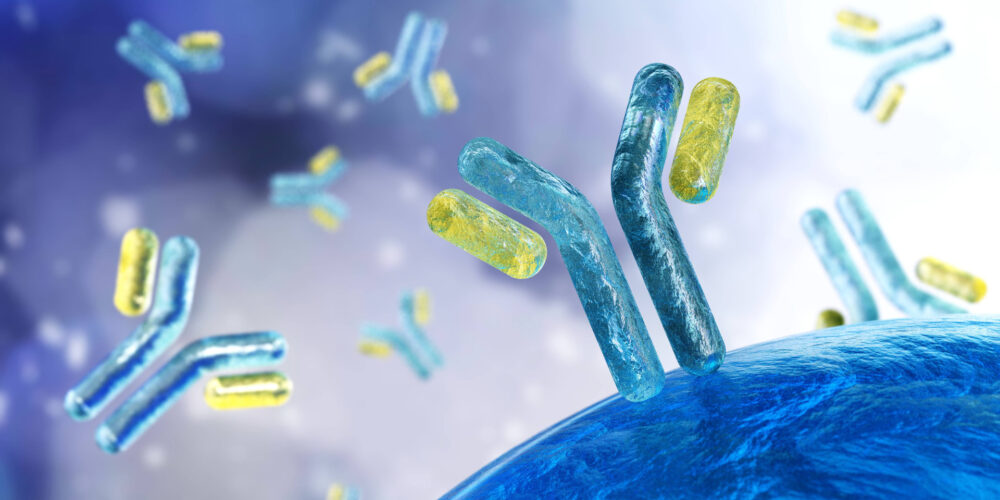Human peripheral blood mononuclear cells (PBMC) represent a heterogeneous menagerie of immune cells isolated from peripheral blood. While they primarily consist of lymphocytes (B-cells, T-cells and NK cells), a smaller fraction of monocytic and dendritic cells are also present. Due to the overwhelming abundance of T-cells within the PBMC population (70-85%), these cells provide a useful and appropriate model with which to study the immunological mechanisms associated with drug-mediated hypersensitivity in vitro.
The PBMC cytotoxicity assay is an in vitro based method which utilizes PBMC isolated from consenting healthy donors using Ficoll and density gradient centrifugation. The cytotoxic potential of candidate drugs towards PBMC is assessed by measuring the levels of cellular ATP depletion and LDH release. Our recently established biobank of PBMC isolated from multiple healthy donors provides the opportunity to investigate donor-dependent PBMC cytotoxicity upon drug exposure. Furthermore, follow-up studies involving other endpoints, such as drug-induced cytokine release, can be performed using the same cryopreserved donor population.
Cyprotex deliver consistent, high quality data with the flexibility to adapt protocols based on specific customer requirements.
Introduction
- Drugs designed for their therapeutic benefits can unfortunately also, on occasion, be associated with unwanted serious hypersensitivity reactions, which can sometimes be fatal in a small proportion of susceptible individuals1.
- Drug hypersensitivity is an unintended adverse drug reaction with an immunological aetiology to an otherwise safe and effective therapeutic agent.
- In addition to inter-individual differences in detoxification pathways, the immunoregulatory system that preserves tolerance to neoantigens varies between individuals and can be influenced by genetic and environmental risk factors as well as disease.
- Drug-specific T-cells are implicated in drug-induced end organ damage and have been isolated from cutaneous blister fluid and liver biopsies2, 3.
- The full immunological consequences of human drug exposure is extremely challenging to predict during early preclinical drug discovery and clinical trials.
- This is partly because a complex interaction of specific individual characteristics (genetic and non-genetic), disease/tissue micro environment and environmental factors determine whether drug exposure will result in therapeutic benefit, adverse reactions or both4.
- Furthermore, stress-signalling following drug exposure modulates the cellular and extracellular microenvironment crucial for adaptive immune activation.
- The PBMC cytotoxicity assay, which utilizes cells isolated from multiple individuals, provides a high throughput assessment of the cytotoxicity of candidate compounds in vitro. It can also provide an initial insight into how immune cells from different donors respond to candidate drugs in development.
Protocol
PBMC Cytotoxicity Protocol
Data
Data from Cyprotex's PBMC Cytotoxicity Assay
References
1) Naisbitt DJ et al., (2020). Immune dysregulation increases the incidence of delayed-type drug hypersensitivity reactions. Allergy 75(4); 781-797
2) Sullivan A et al., (2018). β-Lactam hypersensitivity involves expansion of circulating and skin-resident TH22 cells. J Allergy Clin Immunol 141(1); 235-249
3) Mennicke M et al., (2009). Fulminant liver failure after vancomycin in a sulfasalazine-induced DRESS syndrome: fatal recurrence after liver transplantation. Am J Transplant 9(9); 2197-2202
4) Gibson A et al., (2018). Genetic and nongenetic factors that may predispose individuals to allergic drug reactions. Curr Opin Allergy Clin Immunol 18(4); 325-332
Downloads
- Cyprotex Mechanisms of Drug Induced Toxicity Guide >
- Cyprotex PBMC Cytotoxicity Assay Factsheet >
- Cyprotex Immunotoxicity Servicesheet >

